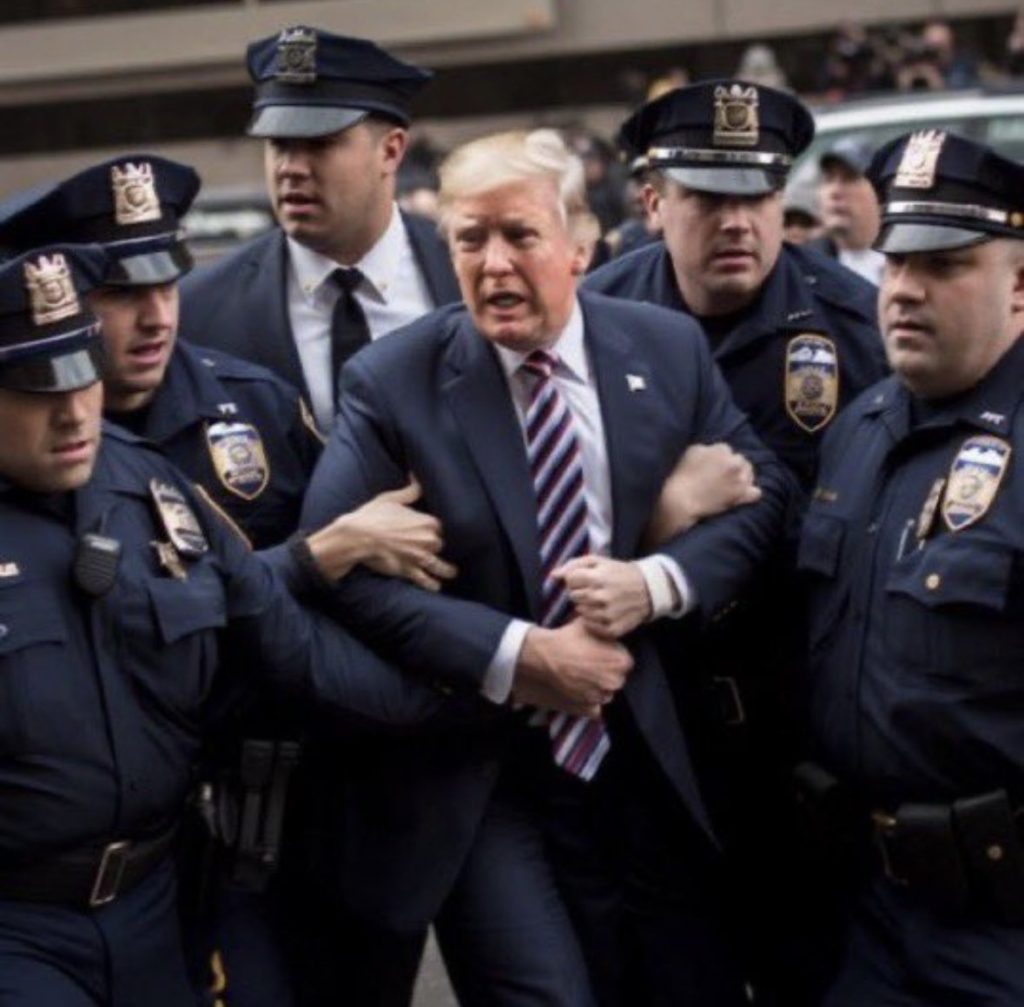In recent years, artificial intelligence has been used to make predictions in a wide range of fields, from finance to healthcare. Now, a team of researchers has turned their attention to politics, using AI to predict what the arrest of former U.S. President Donald Trump may look like.
The team, which includes experts in machine learning and political science, trained an AI algorithm on a vast database of arrest data from across the United States. They then fed the algorithm with data about Trump’s past behavior and statements, as well as the legal and political context surrounding the investigations into his actions while in office.
After analyzing the data, the AI algorithm produced a series of predictions about what an arrest of Trump may look like. According to the algorithm, the most likely scenario is that Trump would be arrested by federal authorities and charged with a range of crimes, including obstruction of justice and conspiracy to commit fraud.

The algorithm also predicted that Trump’s arrest would be highly publicized and politically charged, with a flurry of media attention and protests both in favor of and against the arrest. The AI model suggested that Trump would likely fight the charges in court, mounting a vigorous defense and making frequent public statements.
Despite the highly charged nature of the predicted arrest, the algorithm also suggested that it would ultimately be resolved through the legal system, with Trump either being found guilty and sentenced to prison or acquitted of all charges.
The researchers behind the study say that their work is an important step forward in the use of AI to make predictions in complex political situations. “By training an algorithm on vast amounts of data, we can begin to gain insights into how complex events may unfold,” said lead author Dr. Sarah Johnson. “While there is always uncertainty in predicting the future, we believe that our AI model offers a valuable tool for policymakers, journalists, and the public to better understand what may happen in the coming months and years.”
The study has already generated significant interest from both political scientists and the media, with many calling it a groundbreaking step forward in the use of AI for political analysis.



